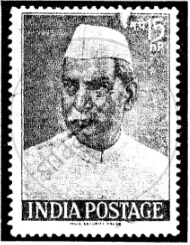Advertisements
Advertisements
प्रश्न
What is known as the Preamble? What is the importance of the opening words of the Preamble?
उत्तर
The Preamble is the introductory part of the constitution, which sets out the main objectives of the Constitution. Though the Preamble is not an operative part of the Constitution, it has a hold on the governments. This is because when there is a dispute regarding the interpretation of the text of the Constitution, the explanation given in the Preamble comes in handy.
संबंधित प्रश्न
Match the contents of Column A with those of Column B
| Column A | Column B |
| 1. Pt Jawaharlal Nehru | (a) Chairman of the Drafting Committee. |
| 2. B. R. Ambedkar | (b) First Prime Minister of India |
| 3. Frank Anthony | (c) Representative of the Parsees. |
| 4. Dr. H. P. Modi | (d) Representative of the Anglo-Indian community. |
| 5. A state where the head of the state is an elected person. | (e) Sovereign |
| 6. A state where the government is run by the elected members of the people. | (f) Socialist |
| 7. A state which is independent of external interference. | (g) Secular |
| 8. A state where there is no discrimination against any religion. | (h) Democratic |
| 9. A state which lays emphasis on economic and social equality. | (i) Republic |
State whether the following is true or false:
All Indian citizens are equal in the eyes of the law.
Answer the following question briefly:
Why did the farmers of the Constitution decide to promote fraternity among the people of India?
This is a picture of the Chairman of the Constituent Assembly of India which drafted the Indian Constitution.

When did the Constitution come into force?
Who was the Chairman of the Constituent Assembly’s Drafting Committee?
Mention any two of the main objects (or ideals) of the Indian Republic as set forth in the Preamble to the Constitution.
Mention the words introduced in the Preamble by the Constitution Forty-second Amendment Act, 1976.
The Preamble to the Constitution describes India as a Socialist State. What does the expression ‘Socialist’ mean here?
Who represented the Anglo-Indians in the Constituent Assembly?
What are the three common restrictions on Fundamental Rights that the Constitution guarantees to citizens of India?
